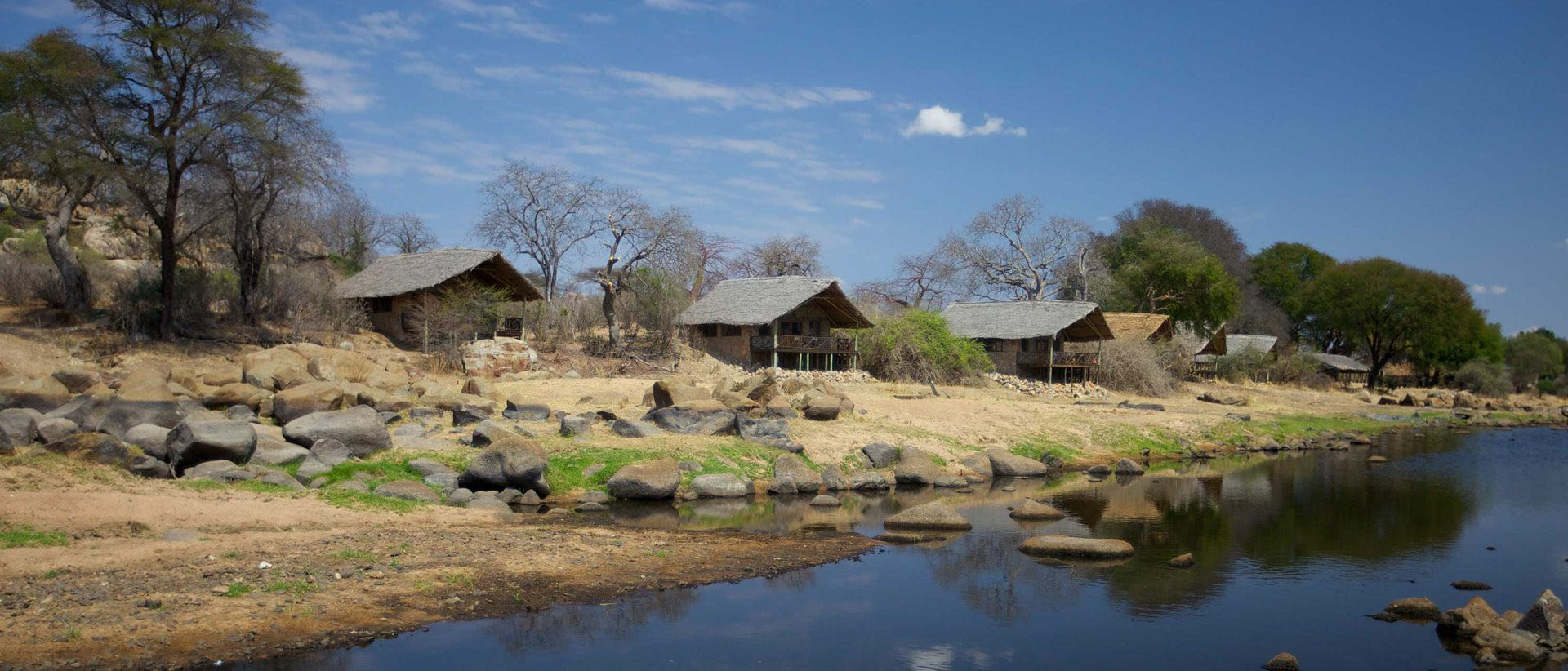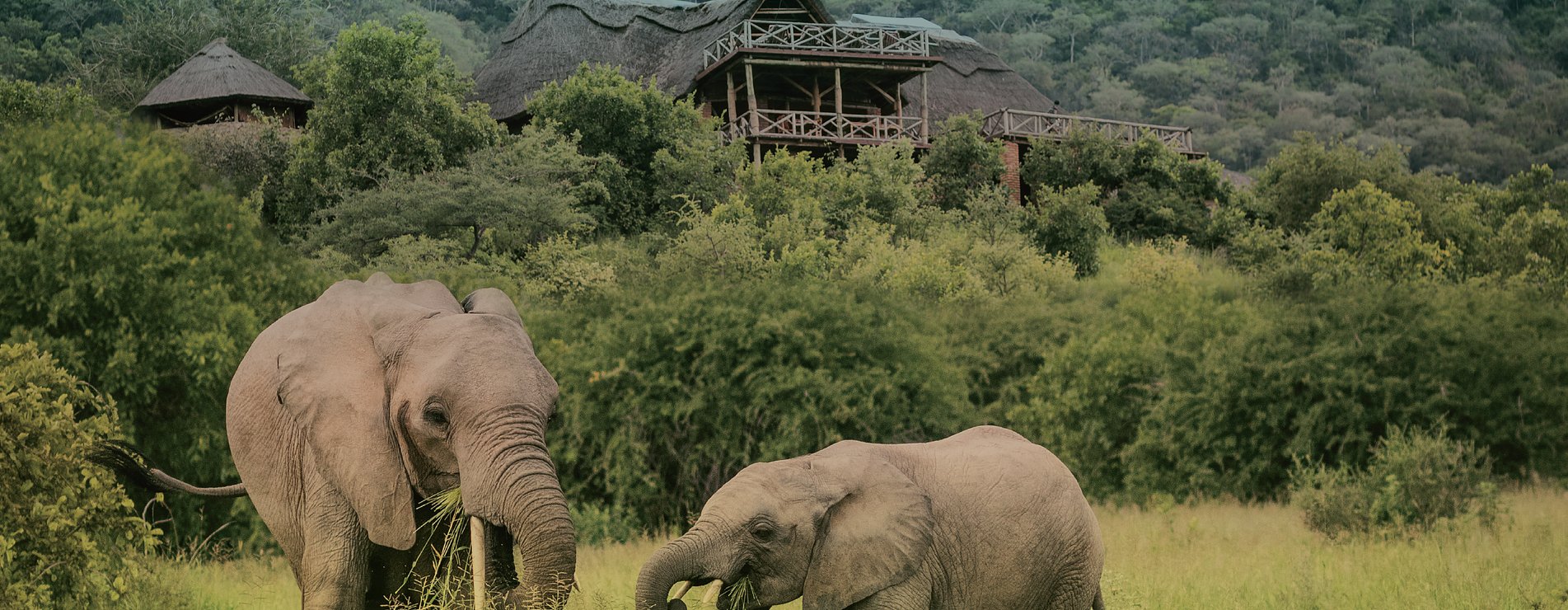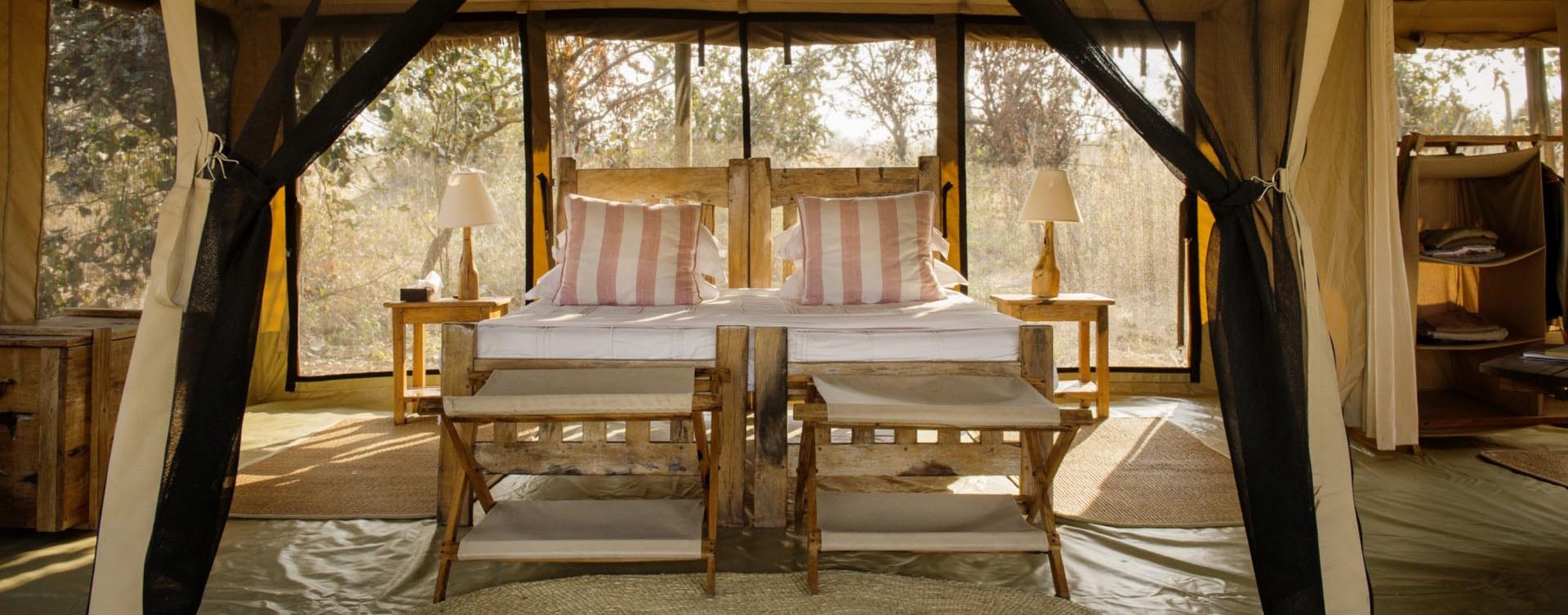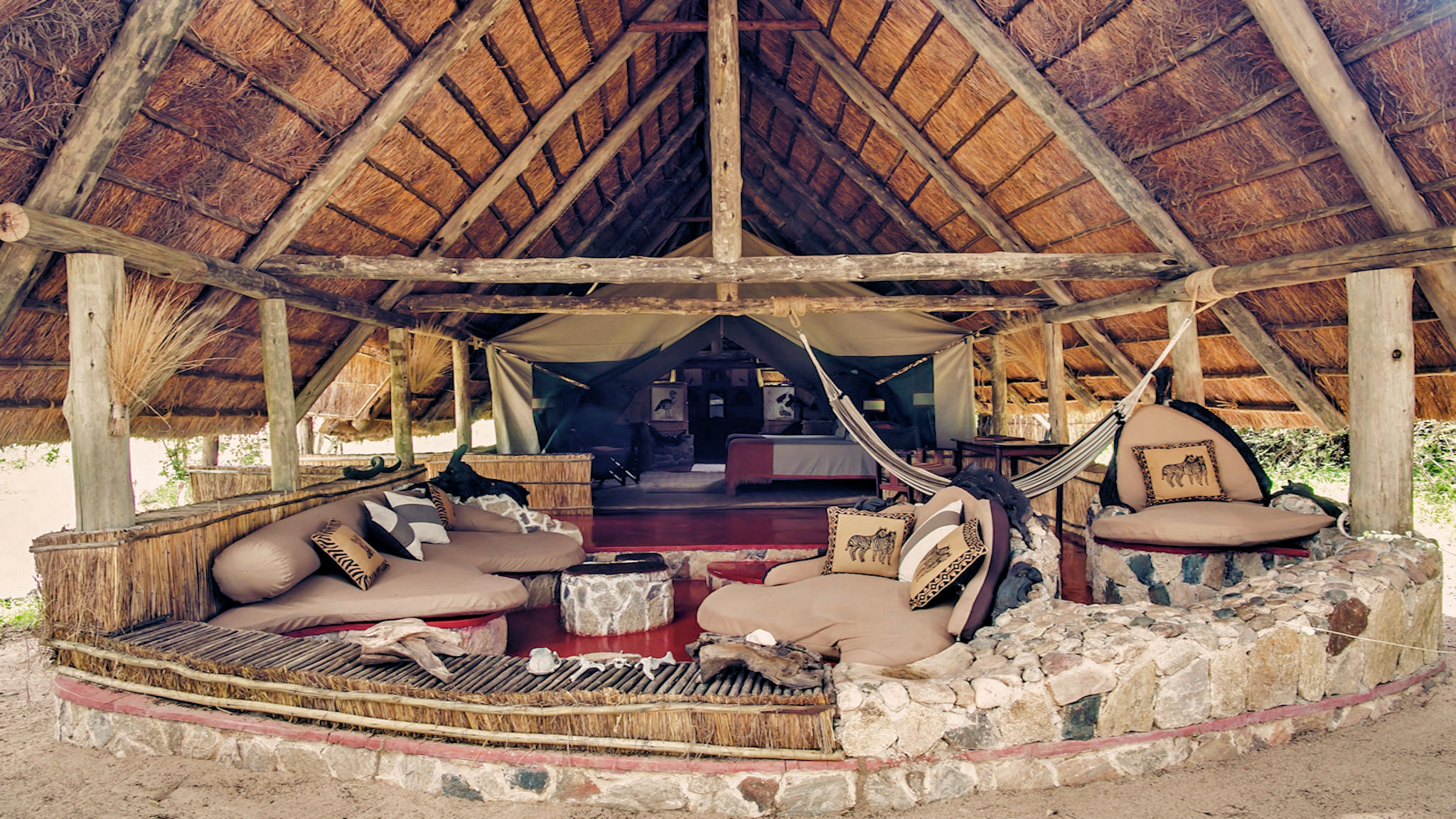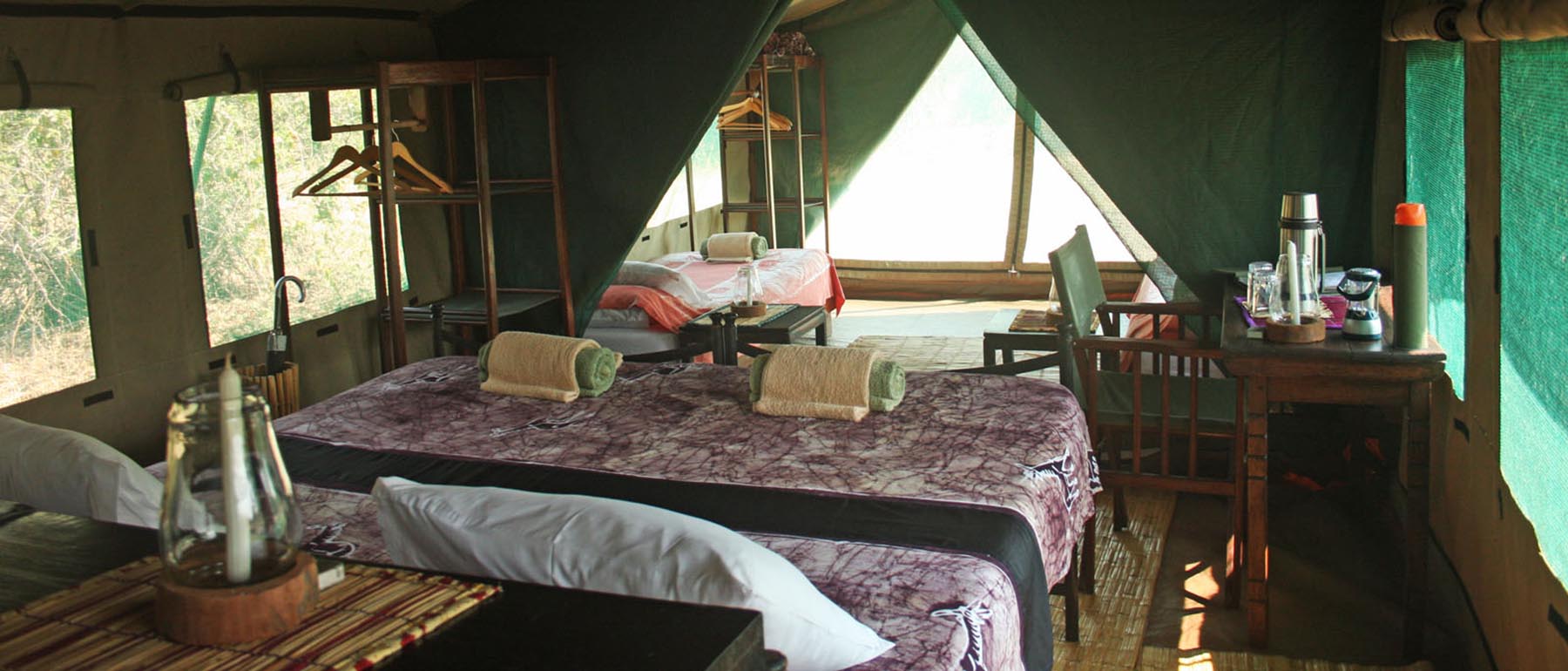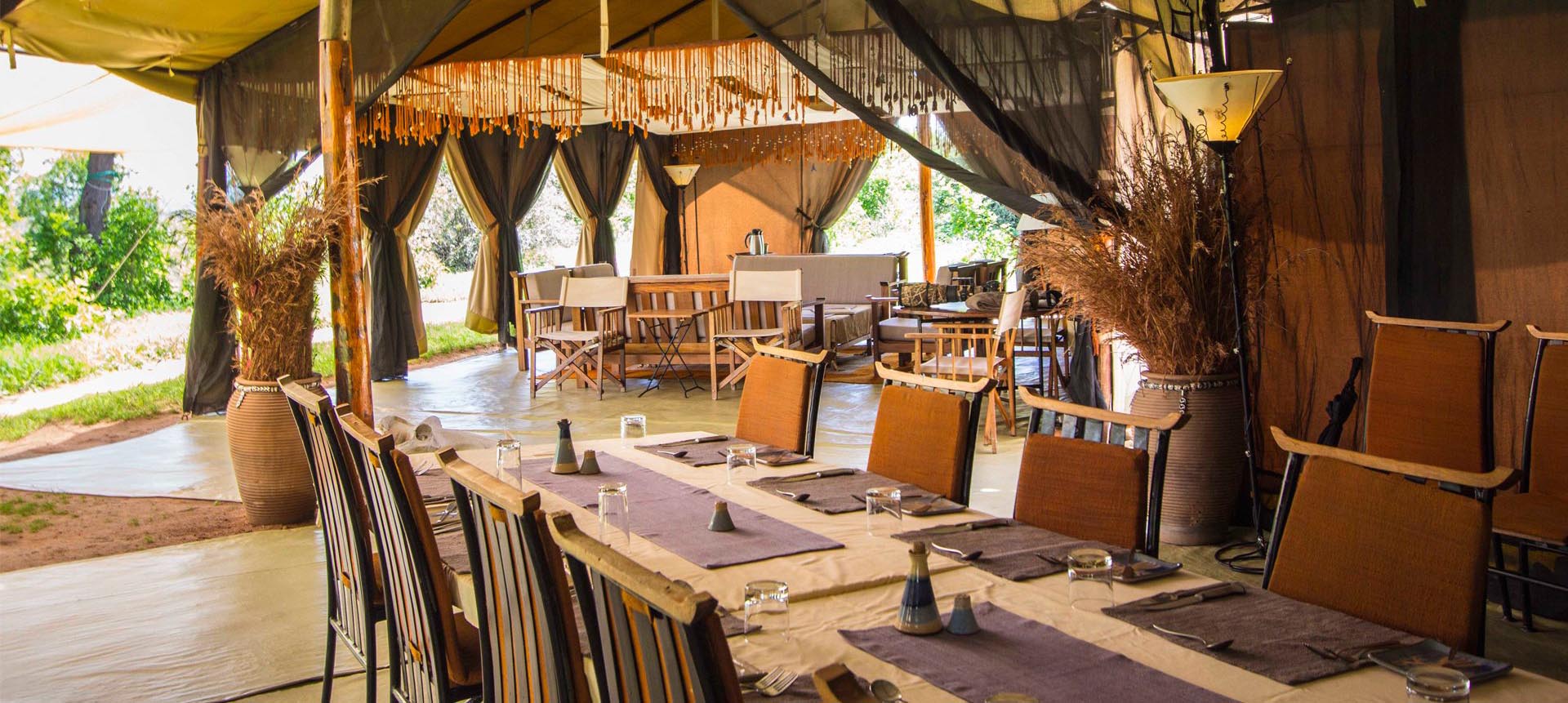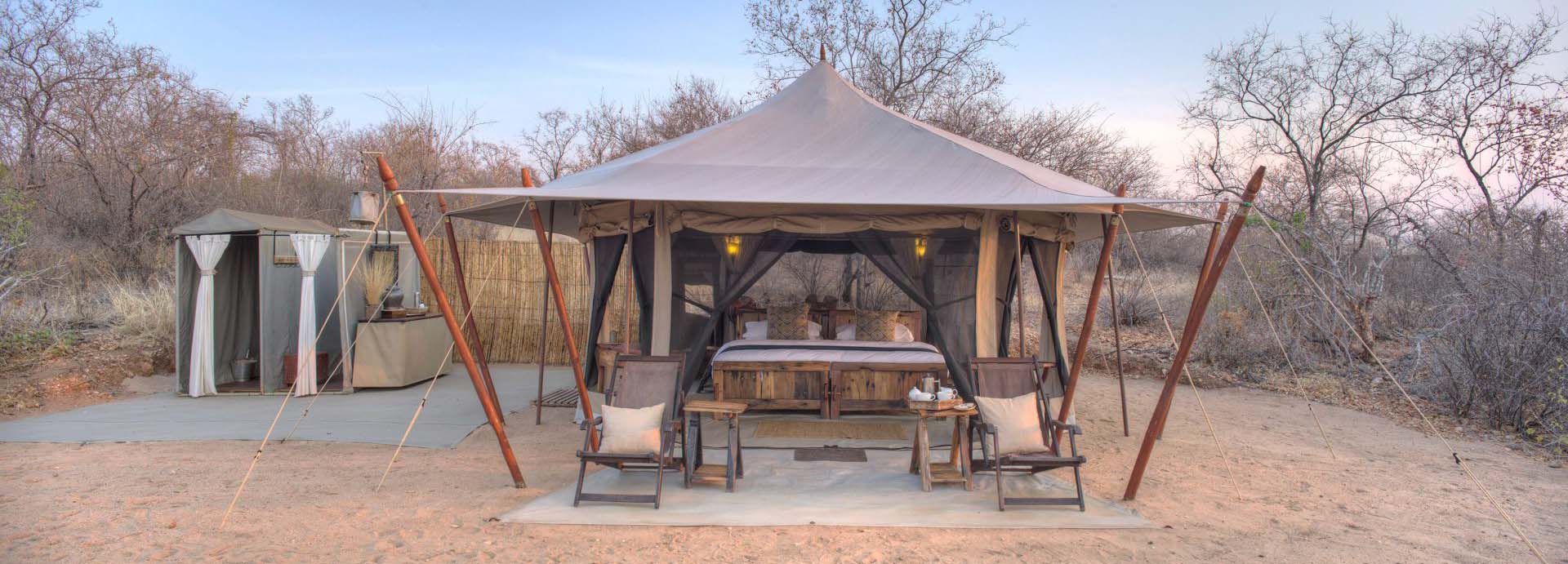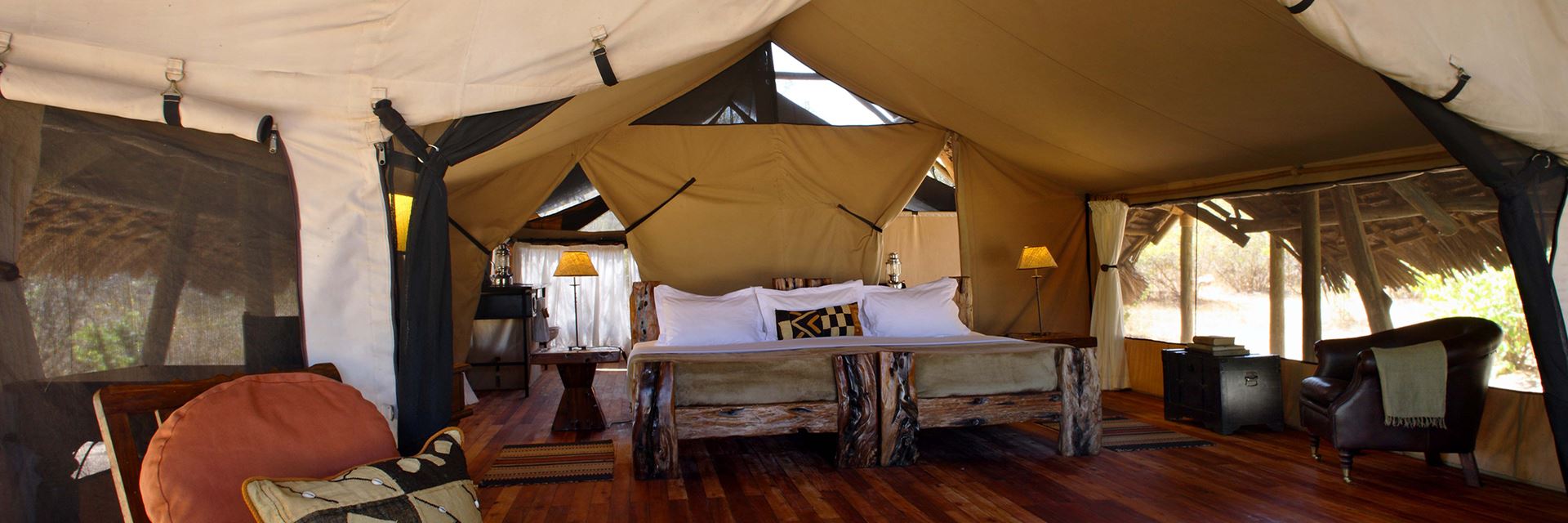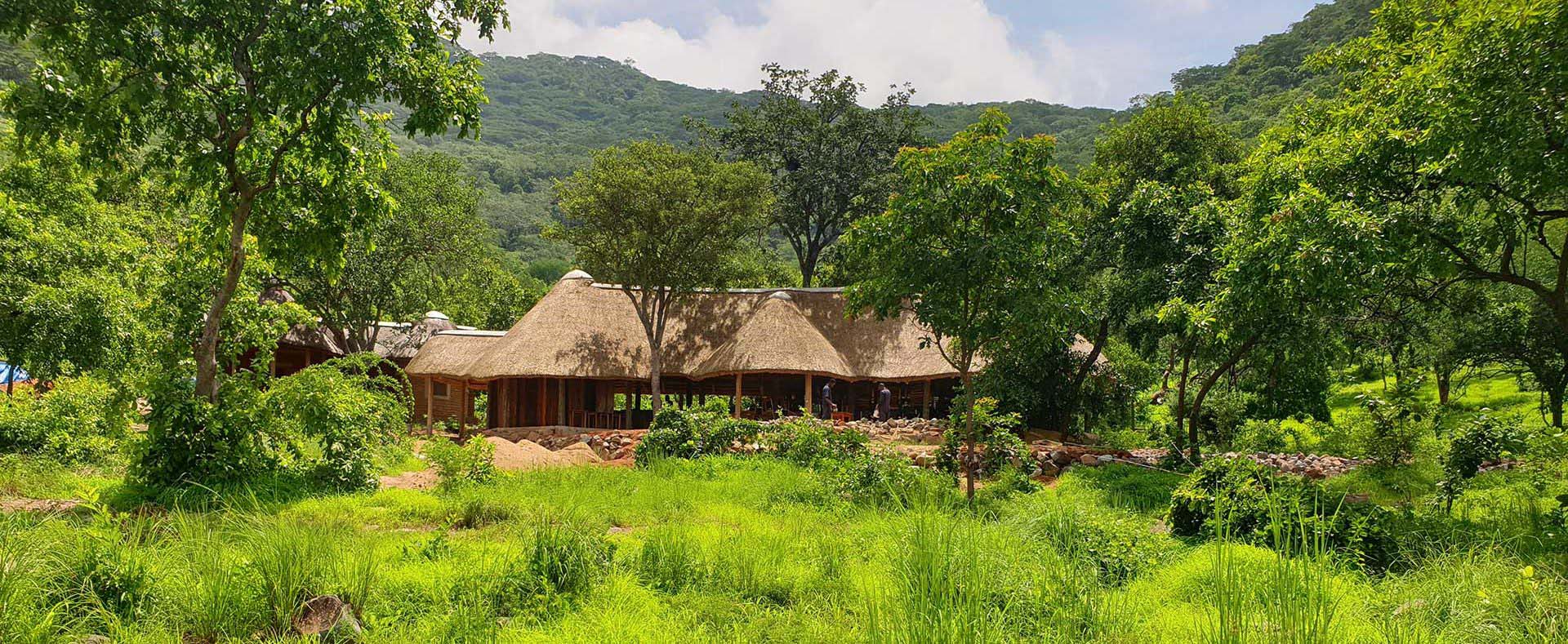Set on one of the most stunning stretches of the Great Ruaha River, you can see game throughout the day from the comfort of your veranda; there can surely be few other camps as perfectly situated.
Ruaha is split across two locations, with one dining banda along the river, and the other perched high on a nearby kopje, offering a completely different perspective.
Ruaha River Lodge consists of 24 stone chalets, built around natural rock formations on the river.
Ruaha River Lodge has two restaurants, one on the edge of the river where many animals come to drink and one on top of a rock formation with a beautiful view of the river and the sunset.





